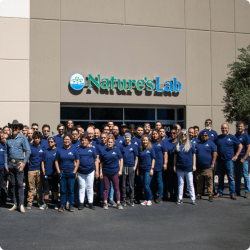

Each day we are discovering more and more how the digestive tract is interconnected to many different facets of health beyond simply digesting food. If you think you know all there is about probiotics check out the latest potential benefits and how you can build better gut health.
The Benefits of Probiotics for Weight Loss
Recent studies have shown that probiotics can exert an effect on metabolism. In comparing the digestive systems of a group of obese individuals with that of those who were at a healthy weight, the gut of the leaner group had a greater variety of friendly microflora. Keeping your gut filled with diverse friendly bacteria may aid weight loss and weight maintenance.*
Probiotics and Immune Regulation

Your gut is the first line of defense against harmful viruses and bacteria. Being deficient in certain helpful bacterial strains can make you more susceptible to certain illnesses. The friendly bacteria in the gut colonize the digestive tract. Colonizing simply means the bacteria are able to reproduce and continue populating the GI tract instead of completely dying off. This may prevent microbes that cause illness from infiltrating the body and adhering to the lining of the gut. There is also promising evidence that probiotics may stimulate the release of T-cells, the main cells used in our immune system defenses.
The Benefits of Probiotics in Fermented Foods

Probiotics from fermented food generally have a more temporary effect on health, however certain strains such as those found in kefir and fermented cabbage foods like kimchi and sauerkraut have a better chance of making it past the acidic environment of the stomach. Kefir often contains beneficial yeasts and the bacteria L.plantarum, both of which have strong colonization ability. Even if the bacteria present in your yogurt only stick around for a few days, they still have health promoting effects while in your system, particularly in decreasing bloating, gas and other digestion related issues.* Frequently eating these types of foods can also increase the chance of colonization.
Feed Your Gut with Prebiotic Fiber Foods

You can encourage your friendly bacteria in the gut by providing a food source for them. Oats, bananas, artichokes, brussel sprouts and seeds are fantastic source of prebiotic fiber. Taking in high fiber foods which contain fructooligosaccharides, inulin or oligosaccharides provides fiber that is not digested by the stomach. This prebiotic fiber makes it to the colon where bacteria can break it down for food. The byproducts of this process provide nutrients that we can absorb and other beneficial elements. For example, some bacteria produce a substance called bacteriocin. This is a peptide whose main function is to kill competing bacteria strains, which tend to be the harmful ones that we don’t want in our gut. Colorful vegetables and fruit can aid your gut health since they contain not only a high fiber content, but flavonoids, which are also a food source for probiotics.
How Probiotics Affect the Gut-Brain Axis
The most exciting research in the field of probiotics concerns how they may support a healthy mood. These microorganisms produce chemicals that interact with parts of the brain such as the cerebral cortex and hippocampus as well as the vagal nerves. Surprisingly, over 95 percent of our body’s serotonin is produced in our gut, not the brain. Many other hormones synthesized in our body are directly influenced by the nutrients and balance of microorganisms in our digestive system. One study showed that L.plantarum may increase brain derived neurotrophic factor (BDNF), a growth factor essential to countless neurological processes.*
Are Probiotic Supplements Helpful?
Getting probiotics from both diet and supplements is a smart way to increase the variety of bacteria in your gut. One of the advantages of taking supplements with probiotics is that they are enclosed in a capsule. The capsule is a protective wall against stomach acid and provides a better chance for the probiotics to reach the large intestine for colonization.*
References
Kechagia, M., Basoulis, D., Konstantopoulou, S., Dimitriadi, D., Gyftopoulou, K., Skarmoutsou, N., & Fakiri, E. M. (2013, January 2). Health benefits of probiotics: A Review. ISRN nutrition. Retrieved March 31, 2022, from https://www.ncbi.nlm.nih.gov/pmc/articles/PMC4045285/
Health benefits of taking probiotics. Harvard Health. (2020, April 13). Retrieved March 31, 2022, from https://www.health.harvard.edu/vitamins-and-supplements/health-benefits-of-taking-probiotics
Reedy, J. (2021, November 19). The benefits of probiotics: A summary of the latest science. The Benefits of Probiotics: A Summary of the Latest Science. Retrieved March 31, 2022, from https://blog.insidetracker.com/benefits-probiotics-summary-latest-science
Carpenter, D. S. (2012, September). That gut feeling. Monitor on Psychology. Retrieved March 31, 2022, from https://www.apa.org/monitor/2012/09/gut-feeling







